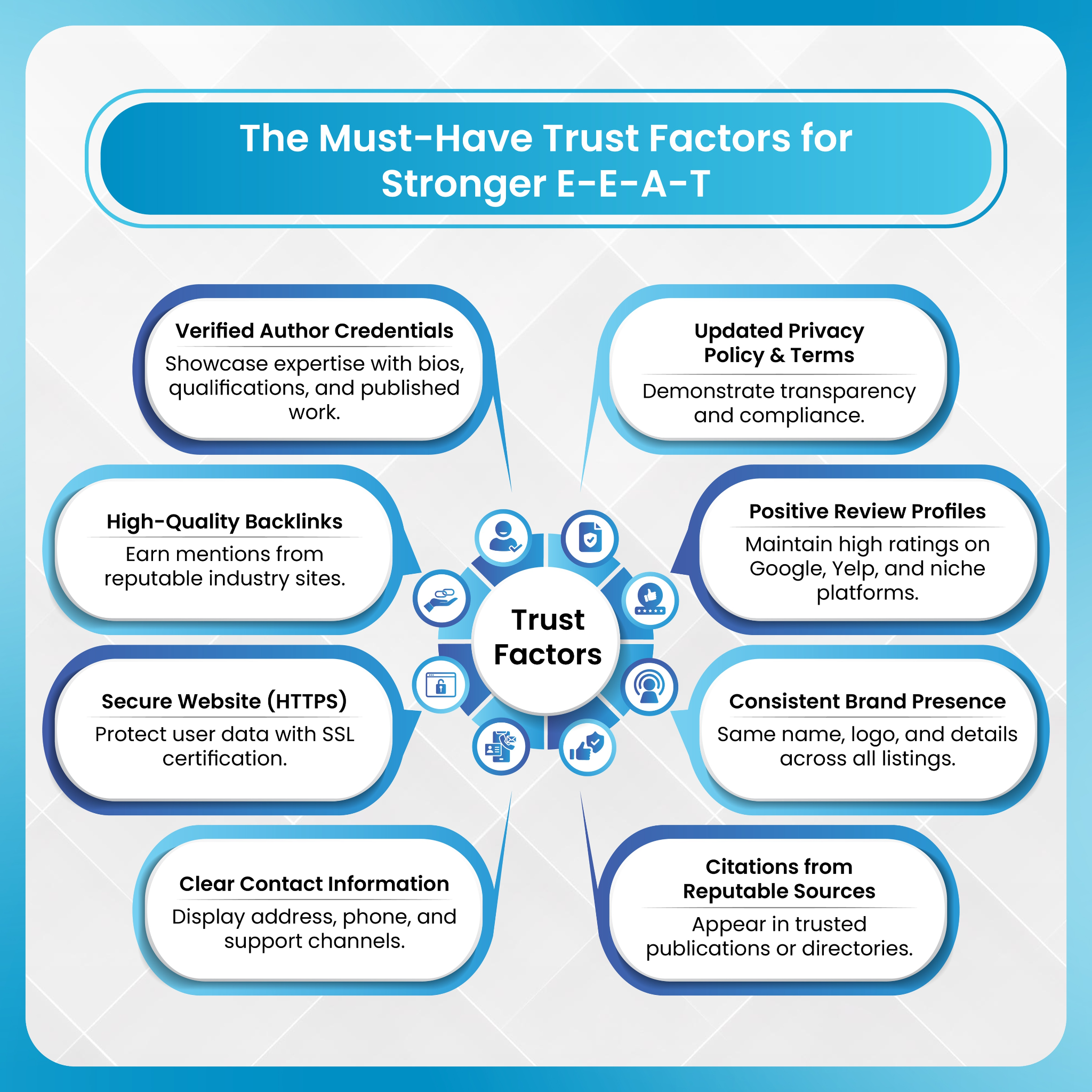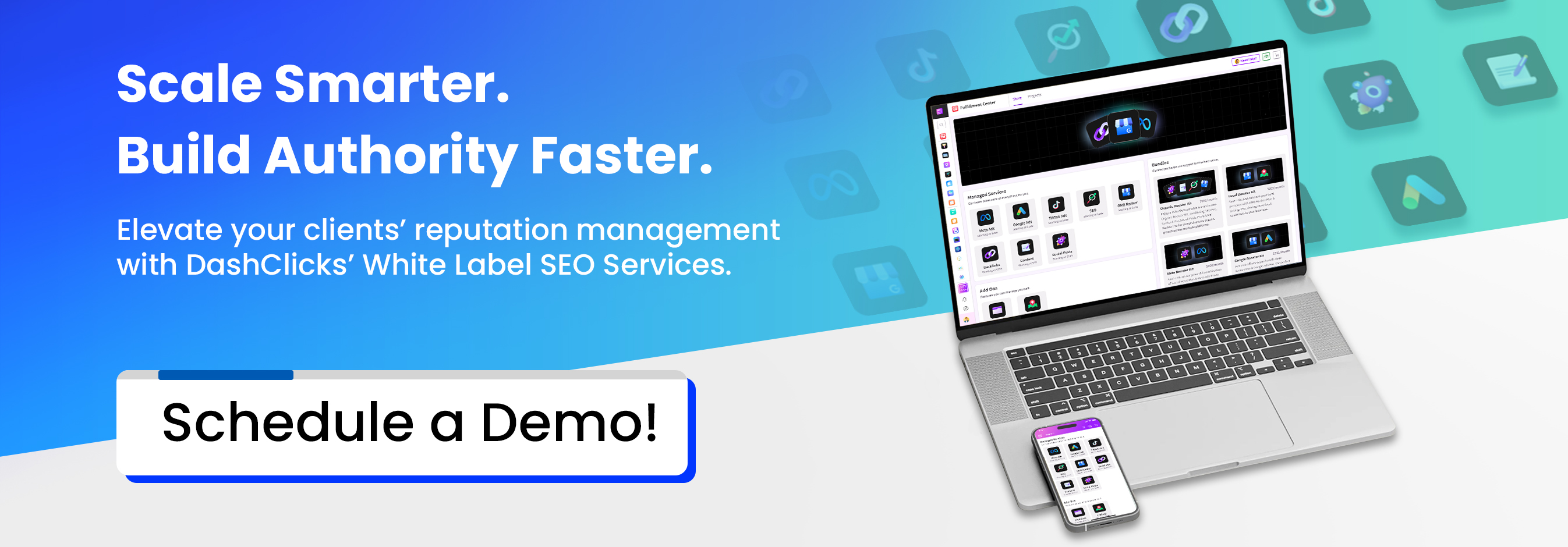In today’s digital-first world, search results, online reviews, and owned content have become the main drivers of business conversions. Consumers no longer make decisions based solely on clicks or advertisements—they carefully evaluate what they read and see about a brand across multiple platforms. Trust has shifted from traditional marketing to peer recommendations and authoritative content.
A survey conducted by Reputation&Trust Analytics found that 92% of consumers trust online reviews as much as personal recommendations, highlighting the critical role of reputation in influencing purchasing behavior.
At the same time, the reputation management market is projected to grow at a compound annual growth rate of 10.8% through 2030, emphasizing the vast potential for businesses to leverage online perception to drive revenue and customer loyalty.
Establishing a strong reputation and authority is now a core business strategy. White label SEO empowers agencies to offer professional reputation management and authority-building services at scale without hiring in-house experts.
By partnering with specialized vendors, agencies can continuously monitor, optimize, and safeguard a brand’s online presence while focusing on strategic growth and client relationships. This approach ensures brands remain visible, trustworthy, and authoritative across search results, reviews, and content platforms, directly impacting leads, conversions, and long-term business success.
Why Most Agencies Struggle to Deliver Reputation & Authority?
Building and maintaining a strong online reputation is complex and requires expertise across multiple areas. Agencies face several challenges that make it difficult to consistently deliver results:
- Fragmented Signals: Reviews, knowledge panels, featured snippets, press mentions, social media, and backlinks all influence perceived authority. Coordinating these channels to present a cohesive brand presence is challenging.
- Skill and Resource Gaps: SEO reputation management demands continuous monitoring, rapid crisis response, high-quality content creation, legal and technical takedown knowledge, and timely reporting. Many agencies do not have in-house teams with the necessary expertise across all these areas.
- Speed and Scale Challenges: Brands require ongoing review collection, prompt responses, and fresh authoritative content. Agencies often lack the resources to scale these tasks effectively in-house.
- Measurement Difficulties: Tracking multi-channel signals and maintaining consistent KPIs is critical to demonstrate ROI. Agencies that fail to do so risk client dissatisfaction and revenue loss.

Common Pain Points Include:
- Negative content appears on the first-page search results.
- Inconsistent review generation and responses.
- Slow crisis mitigation.
- Limited control over knowledge panels and overall brand representation.
These obstacles highlight why reputation and authority management can be difficult for agencies without specialized tools and white label SEO services.
How White Label SEO Agency Solves It?
White label SEO allows agencies to offer comprehensive reputation management and brand authority services by leveraging the expertise of specialized external teams. This approach enables agencies to scale operations, maintain high-quality service, and deliver measurable results without building in-house teams.
1. Centralized Monitoring & Early Warning
Agencies gain the ability to continuously monitor reviews, SERP mentions, social signals, knowledge panels, and backlinks. Early detection of potential issues prevents negative content from gaining traction.
White label SEO agency provides rebrandable dashboards, automated alerts, and triage playbooks that agencies can use to manage client accounts efficiently. Key performance indicators include time-to-detect and time-to-first-response, ensuring rapid mitigation of reputation risks.
2. Review Acquisition & Response Systems
Consistent review acquisition is critical to establishing credibility. White label SEO partners manage systematic review generation through SMS or email prompts, post-interaction flows, and other strategic methods. Pre-approved, templated, and personalized responses streamline the process, ensuring high engagement.
Agencies can leverage these services to test different call-to-action, optimize review flows, and maintain continuous improvement. KPIs to track success include review velocity, average ratings, response rate, and the conversion lift linked to improved review performance.
3. SERP Sculpting & Negative-Content Suppression
Targeted content and strategic link-building are essential for shaping a brand’s search presence. By promoting positive assets—such as blogs, press releases, local citations, and authoritative guest posts—agencies can suppress or push down negative results. The goal is to dominate the first page with content that reflects the brand’s strengths and credibility.
White label SEO providers execute these strategies efficiently, producing and optimizing high-quality authority content while agencies retain full control of the client relationship. Key KPIs include first-page coverage of positive content, the number of suppressed negative results, and improved brand sentiment visibility.
4. E-E-A-T & Authority Content
Experience, Expertise, Authoritativeness, and Trustworthiness (E-E-A-T) are crucial factors in building both search and user credibility. Brands that demonstrate expertise through credible bylines, verified citations, case studies, and structured data earn greater visibility and trust.

White label SEO teams specialize in creating this type of content, managing editorial reviews, schema implementation, and PR outreach to enhance authority signals. Agencies benefit from improved knowledge panel accuracy, higher chances of earning featured snippets, and stronger rankings for brand and authority-focused queries.
Further Reading: Measuring Client Impact: Using White Label SEO to Improve E-E‑A‑T Scores
5. Local SEO & Google Business Profile (GBP) Mastery
Local visibility plays a major role in shaping reputation, especially for service-based and location-driven businesses. Optimizing Google Business Profile, maintaining consistent citations, producing localized content, and managing Q&A sections are all key to establishing trust with nearby audiences.
White label SEO platforms handle these tasks at scale, offering citation audits, GBP optimization, and review syndication. KPIs to monitor include GBP visibility, local pack rankings, call volume, direction requests, and overall engagement with the business listing.
6. Crisis Playbooks & Rapid Response
Reputation crises can escalate quickly if not addressed with precision and speed. Having a structured response plan is vital to minimizing damage. White label SEO providers equip agencies with pre-tested legal, PR, and SEO playbooks that streamline crisis management. These include templates for outreach, emergency suppression campaigns, and correction requests to media or web platforms.
When negative content surfaces, rapid-turn content publishing and targeted link-building are deployed to push it out of prominent search positions. KPIs such as the percentage of negative content removed or demoted from the top 10 results within a defined timeframe help measure success. By leveraging white label SEO services, agencies can act fast, maintain brand credibility, and demonstrate measurable recovery.
7. White Label Reporting & Client Communications
Proving the value of reputation and authority-building efforts is essential for client retention. White label reporting tools like DashClicks’ Analytics Software make it easy for agencies to deliver professional, branded dashboards and monthly summaries that highlight performance outcomes. Automated narratives and KPI tracking simplify complex data, helping clients understand tangible ROI.
These reports typically include metrics such as review growth, keyword rankings, traffic improvements, and sentiment shifts. By outsourcing the reporting process, agencies can save time, enhance transparency, and strengthen client trust while focusing on strategy and expansion.
How DashClicks Helps Agencies with White Label SEO?
DashClicks empowers marketing agencies to offer professional-grade reputation management and brand authority services under their own brand. Its comprehensive white label SEO services combine centralized monitoring, review management, content creation, link-building campaigns, and automated reporting—all in one place.
Agencies can track reviews, manage client feedback, optimize search visibility, and execute authority-driven SEO strategies without needing in-house teams. DashClicks’ streamlined workflows and real-time analytics enable agencies to scale efficiently while delivering measurable outcomes like improved search rankings, accurate knowledge panels, and a stronger digital reputation.
With DashClicks, agencies can confidently manage client reputations, maintain first-page dominance, and build lasting brand authority.
Unique Frameworks & Tactics Agencies Can Copy
Delivering measurable reputation and authority outcomes requires structure. The most successful agencies use proven frameworks that align daily actions with long-term growth goals. Below are some practical strategies you can adapt immediately.
1. Authority Signals Matrix
Reputation and authority are shaped by multiple signals—reviews, backlinks, press mentions, knowledge panels, and social media visibility. The Authority Signals Matrix helps agencies map these elements by urgency and impact. Quick wins, such as review responses or Google Business Profile (GBP) optimization, can drive noticeable results in weeks.
Meanwhile, long-term initiatives like PR collaborations, authority content, and link-building strengthen brand trust over time. This balanced approach ensures that every client’s digital reputation improves steadily and sustainably.
2. Search-First PR
Traditional PR focuses on exposure, but Search-First PR goes a step further by integrating SEO goals into earned media strategies. When PR campaigns are aligned with optimized landing pages and targeted keywords, each media mention contributes to stronger search rankings and authority signals. Agencies using this model turn press coverage into an ongoing SEO asset rather than a one-time publicity spike.
3. Review Velocity Optimization
Instead of random review requests, agencies can use data to time them strategically. Scheduling review prompts after high Net Promoter Score (NPS) touchpoints—like successful service completions or positive customer interactions—drives authentic, high-quality reviews.
A white label tools provider like DashClicks can automate this process while throttling request frequency to avoid platform penalties. Maintaining a consistent review flow helps build trust and sustain long-term visibility in local searches.
4. Entity-First Content
Entity-First Content involves building topic clusters around a brand’s identity, expertise, and related themes. This approach strengthens how search engines understand and associate the brand with specific topics. Using structured data and entity co-occurrence (mentions of the brand alongside relevant keywords), agencies can dominate both branded and related queries. It’s a long-term strategy that cements a client’s authority across their niche.

Example in Practice: For instance, a local healthcare clinic implemented a structured review prompt system and GBP optimization. Within three months, its positive review velocity increased by 30%, resulting in a 20% lift in appointment bookings. These results show how small, consistent actions—when guided by the right framework—can lead to substantial growth in both reputation and revenue.
Creating clear packages and service-level agreements (SLAs) helps agencies streamline operations and set accurate client expectations. A structured offering also makes it easier to scale while maintaining profitability.
- Lite Package: Designed for small businesses or startups, this plan focuses on reputation monitoring and monthly reporting. It’s ideal for clients who want visibility into their online mentions but don’t yet require full-scale intervention. The package includes sentiment tracking, basic SEO audits, and regular updates on review trends.
- Growth Package: A balanced option for growing brands, the Growth plan includes monitoring, review management, and local SEO optimization. Agencies can use tools to improve review generation, respond to feedback efficiently, and ensure consistent citation management across local listings. This plan offers steady authority growth while keeping costs manageable.
- Authority Package: The premium tier delivers a complete reputation and authority-building suite—monitoring, content creation, PR outreach, link-building, and crisis response. It’s best suited for established brands that require active protection and continuous authority expansion. This tier often includes custom reporting dashboards and crisis SLAs for rapid response.
Service-Level Agreements (SLAs): Establish clear timeframes to maintain accountability and trust. For example:
- Monitoring Windows: 24/7 for higher-tier clients, business hours for Lite plans.
- Response Times: Initial triage within 4–24 hours, depending on package.
- Reporting Frequency: Monthly or bi-weekly updates with executive summaries.
Pricing Models: Agencies can choose from:
- Fixed retainers for predictable billing and easier scaling.
- Performance-based bonuses are tied to metrics like review improvements or search visibility gains.
- Hybrid models that combine a setup fee with a recurring monthly charge.
To ensure profitability, aim for a 40–60% gross margin depending on fulfillment complexity and client size. This provides enough flexibility to reinvest in tools, content, and white label support.
KPIs & Measurement Framework
Tracking the right key performance indicators (KPIs) ensures transparency and demonstrates measurable progress to clients. Agencies should monitor these metrics monthly:
- Net Brand SERP Share: The percentage of first-page results controlled by the brand or positive mentions.
- Review Metrics: Velocity, average rating, and response rate to gauge trust and engagement.
- GBP Signals: Profile views, calls, direction requests, and search impressions.
- Authority Outcomes: Featured snippets, knowledge panel presence, and branded organic traffic growth.
- Crisis Metrics: Percentage of negative content suppressed or removed from page one.
For better attribution, use A/B testing or lift tests to connect online reputation management (ORM) efforts to measurable business outcomes such as higher conversions, customer lifetime value, and retention rates.
By combining transparent pricing, performance-driven SLAs, and consistent reporting, agencies can position their reputation management services as both results-oriented and scalable.
Onboarding Checklist + 30/90/180 Day Plan
A structured onboarding and execution plan helps agencies deliver consistent results, streamline collaboration, and build client confidence from day one.
Fast Onboarding (Initial Setup)
To set a strong foundation, gather all necessary assets and information before campaigns begin.
- Credentials: Access to Google Business Profiles, analytics tools, and social media accounts.
- Review Platforms: Identify active and potential review channels such as Google, Yelp, or industry-specific sites.
- Brand Keywords: Compile branded, competitor, and related keywords for monitoring and content targeting.
- Legal Sensitivities: Note any compliance requirements, regulated claims, or restricted topics.
- Crisis Contacts: Establish a direct communication chain for urgent response coordination.
30-Day Plan: Establish the Baseline
The first month focuses on understanding the current landscape and implementing quick-impact actions.
- Conduct a baseline audit of reviews, backlinks, and SERP mentions.
- Set up real-time monitoring and alert systems for brand mentions and reviews.
- Implement quick wins, such as Google Business Profile optimization, citation clean-up, and initial review flow setup.
90-Day Plan: Execute and Optimize
Once the foundation is stable, move to execution and growth.
- Launch content and PR campaigns to strengthen positive brand coverage.
- Begin backlink-building efforts and local SEO expansion.
- Optimize review velocity by automating prompts and scheduling responses.
- Track performance metrics to evaluate early ROI and identify areas for improvement.
180-Day Plan: Scale and Strengthen
By this stage, the agency should focus on deepening authority and expanding the brand’s footprint.
- Build a diverse authority-content portfolio with expert-driven articles, case studies, and guest posts.
- Continue measurement and reporting, refining strategies based on data insights.
- Develop an upsell plan for advanced services such as PR campaigns or multi-location SEO management.
This phased structure ensures consistent progress and clear client visibility into each milestone, turning reputation management into a measurable growth engine.
Conclusion
White label SEO gives agencies the power to scale their reputation management and authority-building capabilities without expanding internal teams.
By partnering with expert vendors like DashClicks, agencies can deliver comprehensive solutions—from monitoring and review management to crisis response and authority content creation. The result is measurable improvement in brand trust, visibility, and long-term client retention.



.svg)

.svg)
.svg)
.svg)
.svg)
.svg)

.svg)




.svg)
.svg)
.svg)
.svg)
.svg)